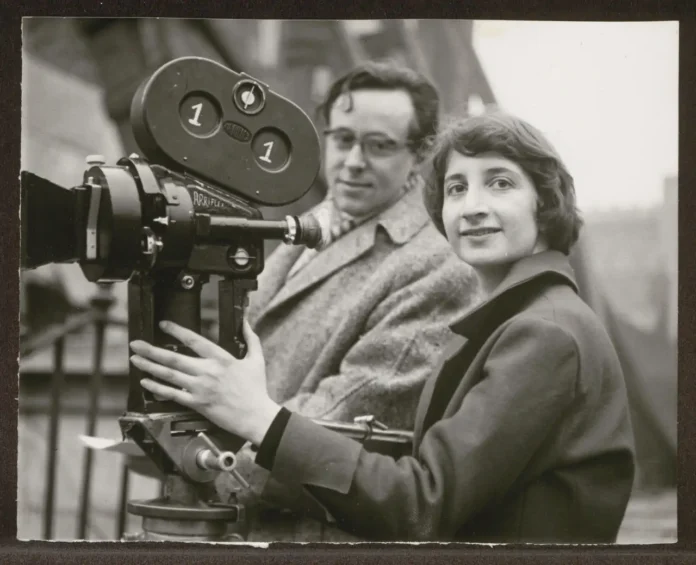During her lifetime, talented émigré filmmaker and artist Lorenza Mazzetti (1927-2020) was often overshadowed by her better-known male contemporaries, including directors Lindsay Anderson and Tony Richardson. Now the BFI shines a light on her considerable work. On 13 September, BFI Southbank presents TOGETHER: THE LONDON FILMS OF LORENZA MAZZETTI ahead of their release on BFI Blu-ray in THE LORENZA MAZZETTI COLLECTION, out on 25 September.
The screening and Blu-ray set each bring together Mazzetti’s three London-made shorts, newly remastered in 4K by the BFI National Archive, setting out to celebrate and reframe her work, squarely repositioning her essential contribution to post-war British cinema and ensuring her visibility for future generations.
Deeply poetic and avant-garde, the three shorts are the recently rediscovered THE COUNTRY DOCTOR (1953), lost for over half a century, K (1953) and TOGETHER (1956). Mazzetti’s remastered films are complemented by a new and candid documentary, TOGETHER WITH LORENZA MAZZETTI (2023), made by artist Brighid Lowe, working with Sight and Sound critic and author, Henry K. Miller. This intimate, insightful documentary features Mazzetti’s last ever recorded interview. A portrait of the artist at 90, it gives a vivid impression of an irrepressible spirit, revealing the life behind her art.
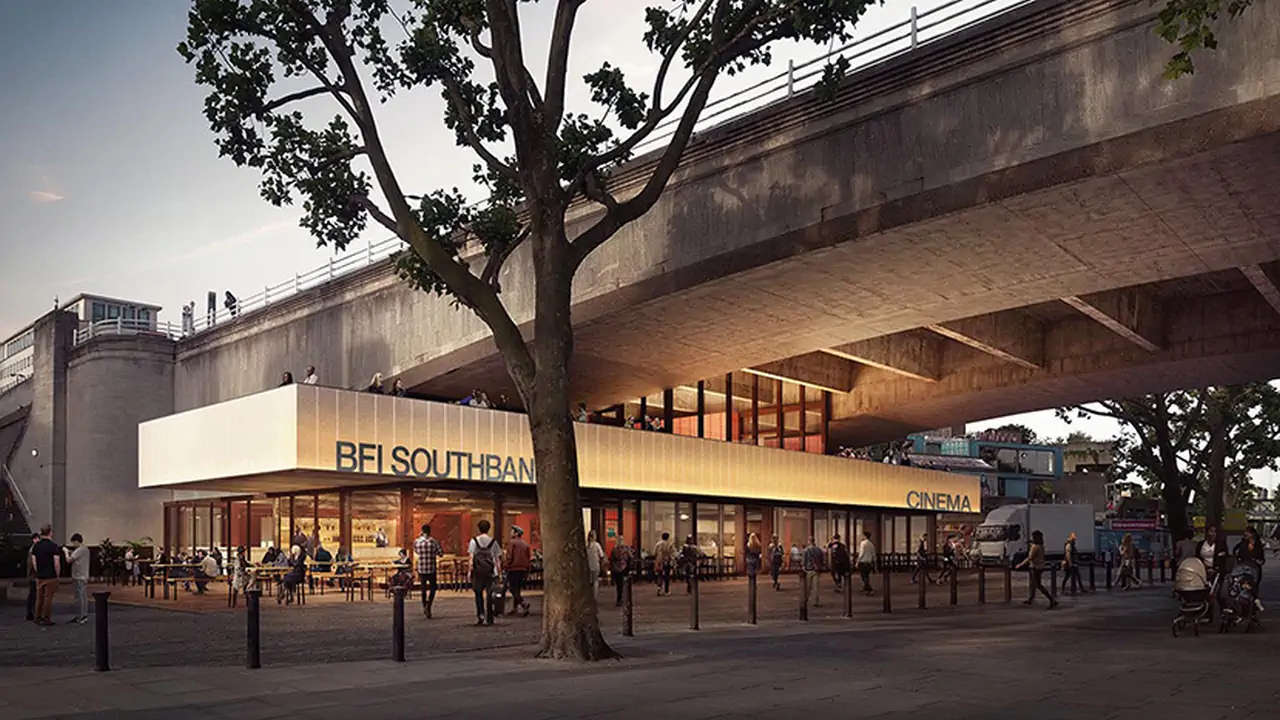
Will Fowler, BFI National Archive curator of artist moving image said; “The BFI National Archive’s newly remastered versions of her three London films, which includes the significant rediscovery of Mazzetti’s long-lost film The Country Doctor, are a revelation, demonstrating her to be a special filmmaker with a remarkable life story and a singular, modernist if haunting vision.”
Brighid Lowe, director of Together With Lorenza Mazzetti adds; “Lorenza was 90, when Henry K. Miller promised that we would “hunt down” The Country Doctor, a film unknown even to her family and thought lost: it was a promise that Henry and I were able to keep. Before her death in 2020, Lorenza was reunited with her extraordinary film, completing her trilogy of Kafka films.”
Born in Florence in 1927, Lorenza Mazzetti and her twin sister Paola were raised in the countryside by their aunt Nina, who had married Robert Einstein, a cousin of Albert, and Jewish. In 1944 Nazi soldiers killed Lorenza’s aunt and young cousins, sparing the Mazzetti twins because they were not deemed to be Jewish. Robert killed himself a year later. Arriving in London in 1951, Mazzetti quickly made friends with other artists and filmmakers, finding a restorative freedom through her art, to help express the pain of separation from her twin sister, and a trauma, born of the atrocity she had survived, that she was unable to express in words.
Mazzetti was the only woman of the group of filmmakers that founded the Free Cinema movement in the UK in the 1950s, which revolutionised the British film industry and captured post-war society on the cusp of change. While her male contemporaries, Lindsay Anderson, Karel Reisz and Tony Richardson became known for ‘kitchen sink’ realism, Mazzetti’s narratives were more radical and distinctly avant-garde in their authenticity. Her stark yet playful films, all shot on location in the capital’s smoggy, bomb-devastated landscapes, are psychodramas, influenced by Kafka’s bleak absurdity. These highly personal and poetic films helped broach and process her own wartime mental scars and turned an existential lens on London’s war-damaged urban vistas.
Mazzetti enrolled as a painter at the Slade School of Fine Art, part of University College London, in 1951. It was there that she began filmmaking. K (1953), based on Kafka’s Metamorphosis featured her fellow student and lover Michael Andrews as Gregor Samsa. Fragmented and collage-like, the film is stunningly avant-garde, evoking the experimental language of early cinema and German Expressionism.
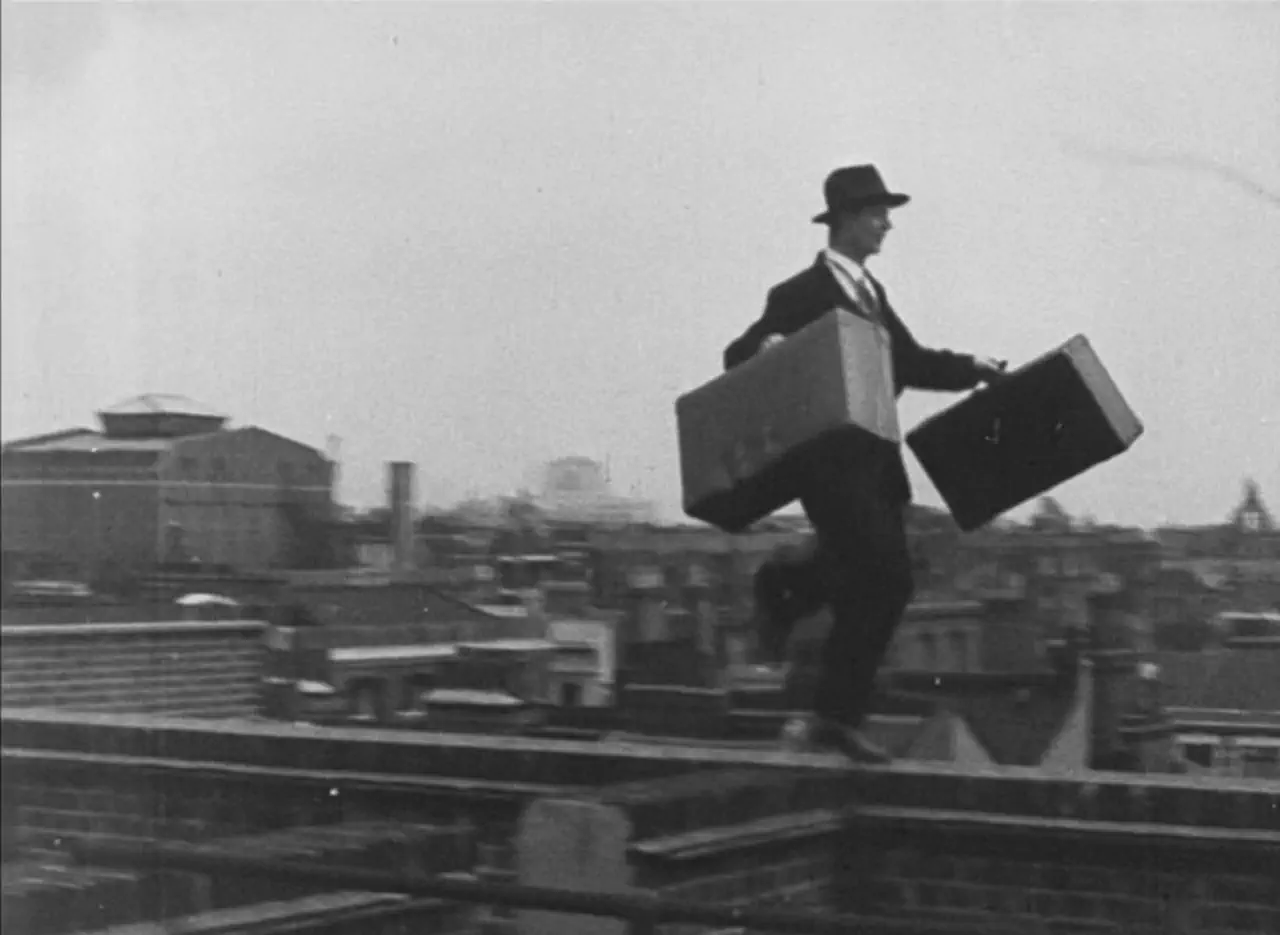
A deeply impressionistic, angular portrait of a city as experienced by an outsider, London appears strange, unfamiliar and unforgiving. Shot guerrilla-style, the handheld camera searches hungrily for different textures and glimpses of the city, from the highest rooftops to the streets.
Mazzetti’s follow-up TOGETHER (1956), made with the support of the BFI’s Experimental Film Fund, follows the ambling existence of two deaf-mute dock workers, played by the artists, Eduardo Paolozzi and Michael Andrews performing alongside the Left Bank icon Vali Myers.
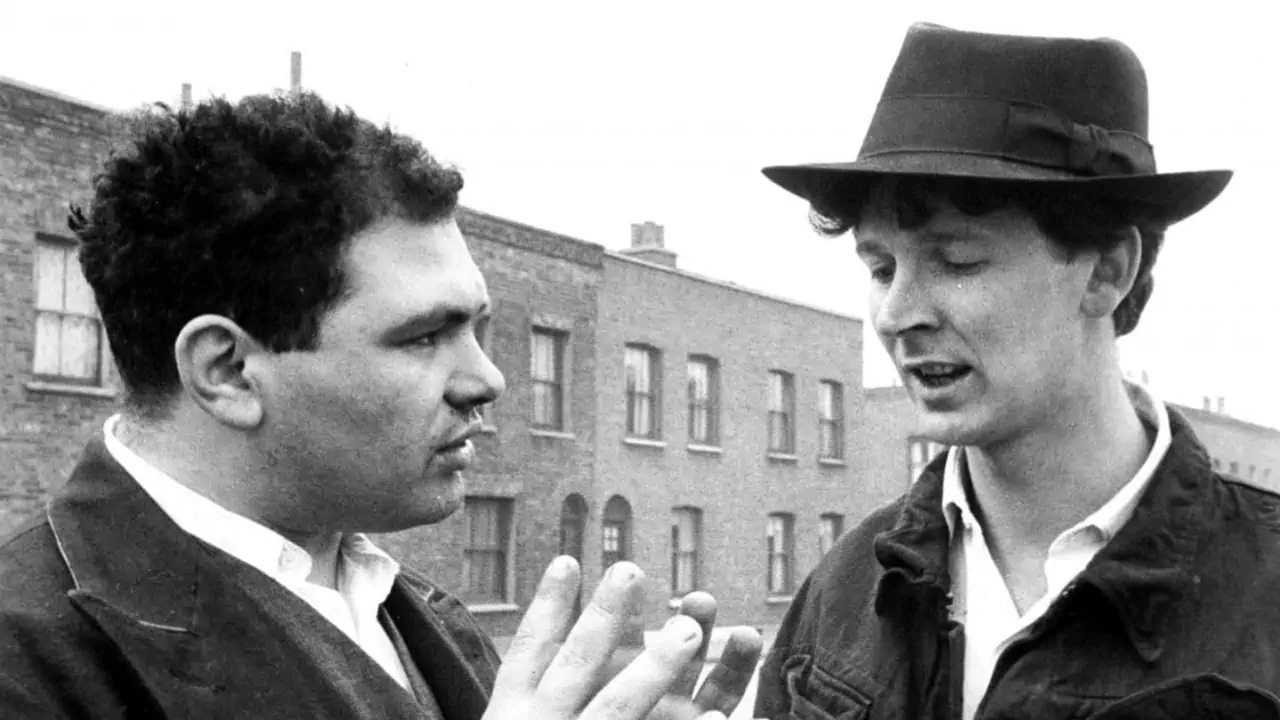
Set against the backdrop of the bomb-scarred East End in pin-sharp, richly textured detail, Mazzetti used the ruined parts of the city to reflect a fractured mental landscape, crafting a poetic depiction of a post-war London populated by unruly children, sparse bedsits and harsh realities. TOGETHER debuted in the first Free Cinema programme, at the National Film Theatre, in 1956, alongside documentary films by Lindsay Anderson (who helped Mazzetti edit the film), Tony Richardson and Karel Reisz. Considered the centrepiece of the Free Cinema movement at the time, TOGETHER was awarded a prize at Cannes.
Mazzetti’s long lost work, THE COUNTRY DOCTOR (1953) was rediscovered in the Amos Vogel Archive at the University of Wisconsin-Madison during research for Brighid Lowe’s documentary, TOGETHER WITH LORENZA MAZZETTI. Based on a short story by Franz Kafka, THE COUNTRY DOCTOR is a melancholically surreal film that follows an unexpected, urgent visit to a sickly patient whose wounds occur more on the inside than the outside and cannot be cured. A circular, ghostly melody instils a sense of a loneliness with both patient and doctor locked in their own personal, existential prisons.
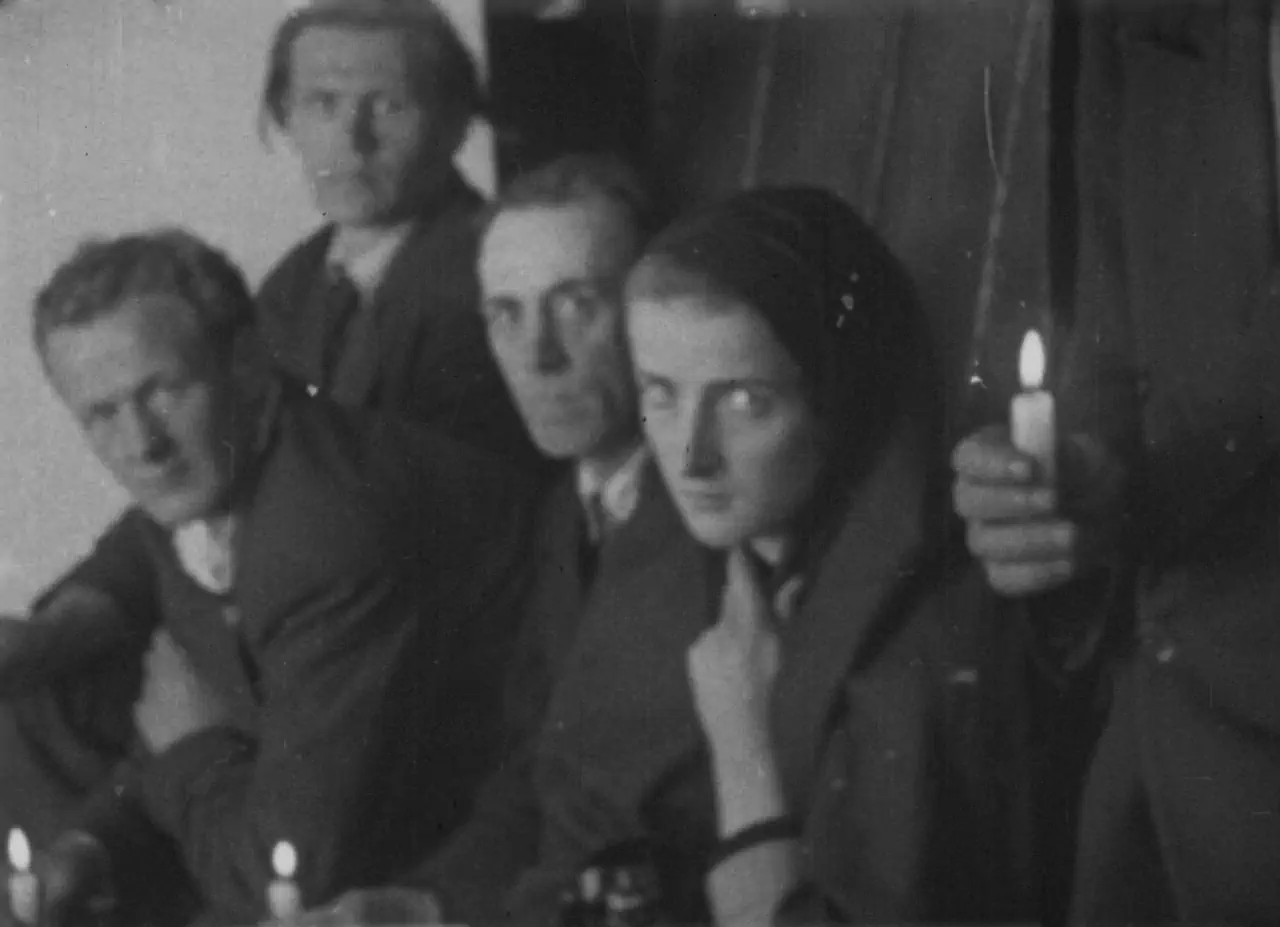
An incredible find, more than half a century after it was lost, Mazzetti talked publicly about THE COUNTRY DOCTOR for the first and only time in TOGETHER WITH LORENZA MAZZETTI. Through associative montage and candid interviews, Brighid Lowe and Henry K. Miller’s documentary subtly relates extracts from Mazzetti’s films of the 1950s to her emotional trauma and the restorative freedom she found as a student in post-war London.
Despite her success with TOGETHER, Mazzetti was not able to finance new projects in England, and she returned to Italy in 1957 where she made a number of documentary films, most of them currently lost, and contributed to two anthology films co-ordinated by the screenwriter Cesare Zavattini. In the 1960s she wrote two autobiographical novels, beginning with Il Cielo Cade, a fictionalisation of her childhood and adolescence, based on her wartime experiences, later made into a film starring Isabella Rossellini and recently republished in English as ‘The Sky is Falling.’ When Mazzetti’s memoir, Diario Londinese (London Diaries), was published in 2014, author Ali Smith described “how a smattering of luck, bravado and good friendship forged the filmmaker and artist she became…transmit(ting) the terrible fracture and surreality of aftermath as only a real admirer of Kafka could.” Lorenza Mazzetti died in Rome in 2020.






























